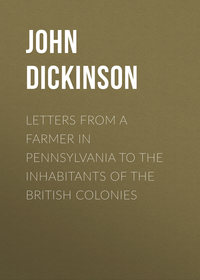Letters from a Farmer in Pennsylvania to the Inhabitants of the British Colonies

Полная версия
Добавить В библиотекуАвторизуйтесь, чтобы добавить
Добавить отзывДобавить цитату
Letters from a Farmer in Pennsylvania to the Inhabitants of the British Colonies
Авторизация